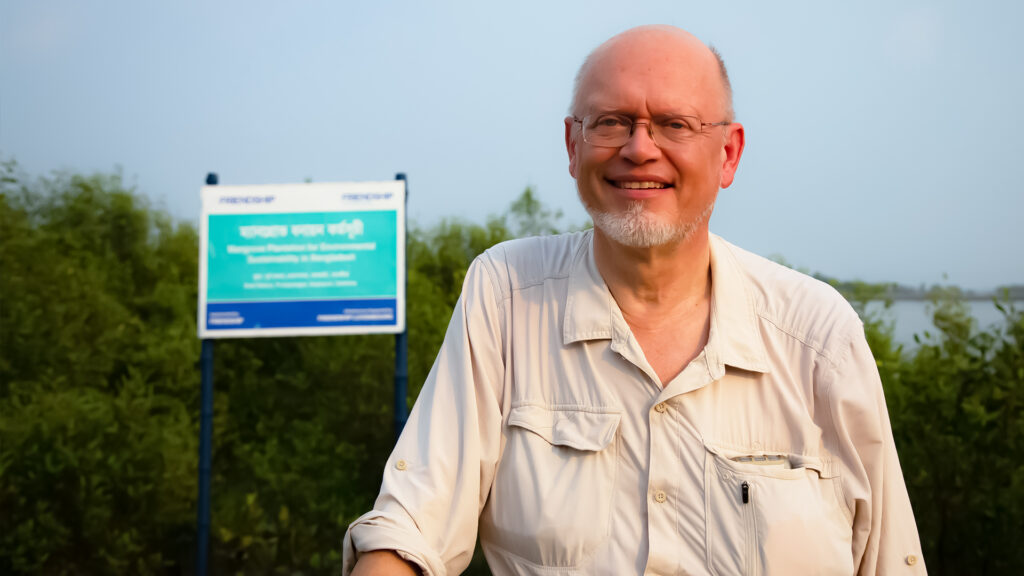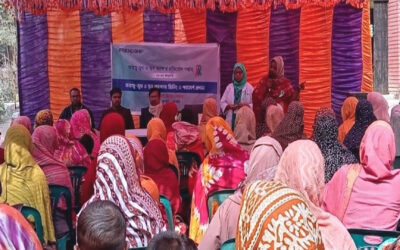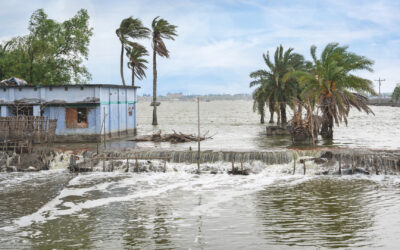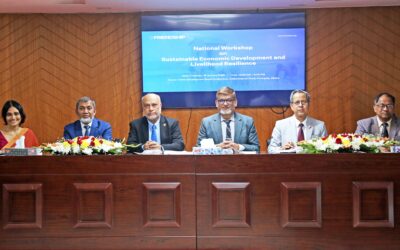We sat down Belgian climate scientist and former IPCC vice-chair Jean Pascal van Ypersele for an interview where he stated his impressions of Friendship’s mangrove plantation and its importance in protecting climate impacted local communities.

by Friendship News Desk
May 28, 2023
A professor of climatology and sustainable development sciences at Université catholique de Louvain, Belgium and former vice-chair of the Intergovernmental Panel on Climate Change (IPCC), Professor Jean Pascal van Ypersele visited Friendship’s mangrove plantation nursery in the coastal town of Shyamnagar in Satkhira. He observed the mangrove afforestation project, attended a courtyard session with disaster volunteers and engaged with climate-impacted communities.
He has been nominated by the government of Belgium as a candidate for IPCC chair in 2023.
Here are his thoughts from his visit to Bangladesh and Friendship’s project areas:
What did you choose to include Bangladesh in your visit to climate-impacted countries?
I am visiting Bangladesh because it is a very important country, and as it is very vulnerable to climate change. I also have many friends here and many interesting projects to visit and I am so happy to have been able to take a few hours from my schedule to visit this project in the mangroves.
What are your insights from your visit to the climate impacted southern coastal belt?
I have been visiting many capitals including Dhaka and it’s very good to be here in the countryside, in the district of Satkhira where people live close to the natural resources, and in a position which up to now and very recently, has been extremely vulnerable to cyclones, high tides and high winds.
I have seen the positive impact that the mangrove plantation had on the lives of those people. I met them, and they told me how important it had been to have this project that is managed by the community. Community involvement is key to the success of such projects.
Do you think the mangrove plantation will contribute to the welfare of the community?
What I have seen here is really wonderful. It’s the community owning the mangroves and all the projects around the crabs that they are able to sell, and the fish that they are able to collect. it’s really inspiring and very important for me, someone who wants to be the chair of IPCC—the UN panel of scientists dealing with climate change, to see what the reality is. The reality seen through the eyes of people I have been able to meet here in this community next to the mangroves is what matters. The mangroves are beautiful. They are growing, they will be higher in a few years. They are also storing carbon which is great for the climate. Their main effect is that they are protecting the community.
What are your takeaways from meeting people at the frontline of the climate crisis?
To meet all those people talking about the advantages of having those mangroves around their town is really inspiring for my future, I hope, in IPCC because I feel this is really the kind of important work that needs to be promoted in other parts of the world as well.
The sense I had when meeting the 40 members of the local community here was that they have a lot of energy. Thanks to the project, they regained hope. Before the mangroves were there, the tides and the cyclones were hitting hard in their community, flooding everything, destroying the crops etc. This is not happening anymore. This is really important. It shows that things can be done. It shows that the future is in our hands if we want. This is very inspiring for the world and for the work we need to do to keep this planet, the only inhabitable planet in the solar system, inhabitable for all.




